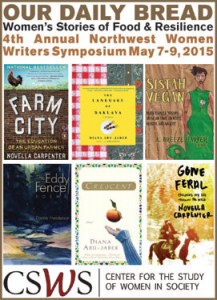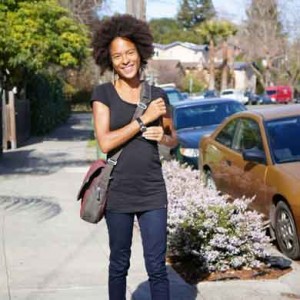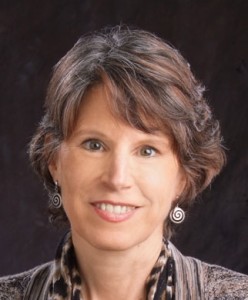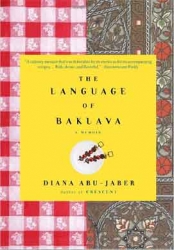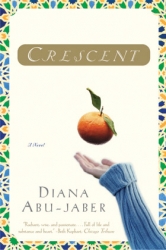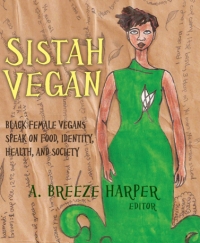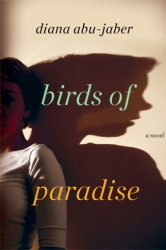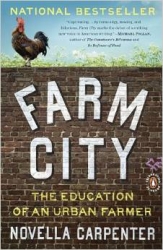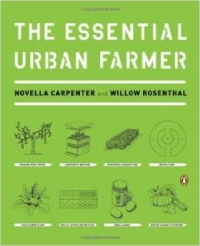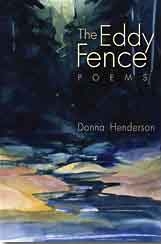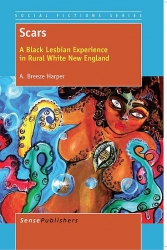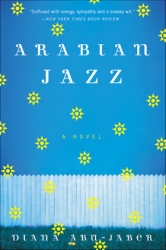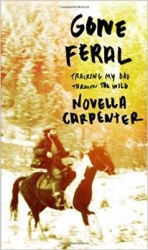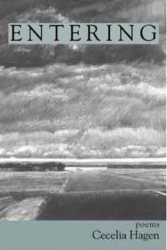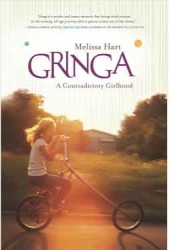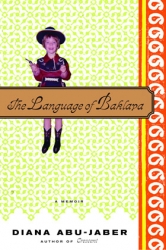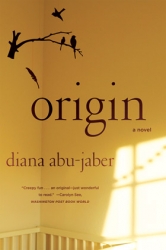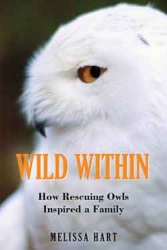“Our Daily Bread: Women’s Stories of Food and Resilience” May 7 – 9, 2015
The fourth annual CSWS Northwest Women Writers Symposium will be held Thursday May 7, 2015, through Saturday May 9, 2015. Diana Abu-Jaber (Crescent; The Language of Baklava; Birds of Paradise) is the keynote author and will be joined by writers Novella Carpenter (Farm City: The Education of an Urban Farmer); scholar, activist, social justice novelist, editor Breeze Harper (Sistah Vegan; Scars); poet Donna Henderson (The Eddy Fence), and others.
This theme opens conversations about the sensuality of food; food and culture; food shortages; hunger and poverty; health and eating disorders; climate change; misuse of natural resources; environmental racism; food distribution; genetic manipulation of seeds; and preparation and growing of food. Food is our daily bread, but in the practice of writing, what else feeds us? “Our Daily Bread” is a rich theme that will open the door to fruitful discussions of craft, creativity, humanity, gender, and community.
Events will be held on the University of Oregon campus and at the Downtown Eugene Public Library (10th& Olive). Events are free and open to the public. However, Saturday afternoon workshops will be limited to 20 participants each. Starting April 14, you can preregister for limited spaces in these Saturday afternoon workshops by calling Eugene Public Library at 541-682-5450 (Press 2).
Events are sponsored by the UO Center for the Study of Women in Society with the generous support of Eugene Public Library; Oregon Humanities Center; UO Division of Equity and Inclusion; the UO Departments of Women’s and Gender Studies, English, and Ethnic Studies; UO School of Journalism and Communication; University Health Center; UO Libraries; Wayne Morse Center for Law and Politics; and the ASUO Women’s Center.
[column width=”2%” padding=”0%”]
[/column]
[column width=”46%” padding=”2%”]
Thursday, May 7, 2015 Diana Abu-Jaber
Reading / talk with Q & A 6 p.m.—Downtown Eugene Public Library at 10th and Olive (100 W. 10th St.)
“Food is such a great human connector; it’s so intimate. And Middle Eastern food, when it’s done well, is amazing. I thought…let the food be a metaphor for their experience.” —Diana Abu-Jaber
Speaker: Diana Abu-Jaber was born in Syracuse, New York to an American mother and a Jordanian father. When she was seven, her family moved to Jordan for two years, and she has lived between the U.S. and Jordan ever since. Life was a constant juggling act, acting Arab at home but American in the street. The struggle to make sense of this sort of hybrid life, or “in-betweenness,” permeates Abu-Jaber’s fiction.
Her first novel, Arabian Jazz— considered by many to be the first mainstream Arab-American novel—won the 1994 Oregon Book award and prompted Jean Grant of The Washington Report on Middle East Affairs to say, “Abu-Jaber’s novel will probably do more to convince readers to abandon what media analyst Jack Shaheen calls America’s ‘abhorrence of the Arab’ than any number of speeches or publicity gambits.”
 Her second novel, Crescent (W.W. Norton 2003), which was inspired by Shakespeare’s Othello, is set in contemporary Los Angeles and focuses on a multicultural love story between an Iraqi exile and an Iraqi-American chef. Lush and lyrical, suffused with the flavors and scents of Middle Eastern food, spiced with history and fable, Crescent is a sensuous love story as well as a gripping tale of commitment and risk. It won the PEN Center Award for Literary Fiction, the American Book Award, and has been published in eight countries to date.
Her second novel, Crescent (W.W. Norton 2003), which was inspired by Shakespeare’s Othello, is set in contemporary Los Angeles and focuses on a multicultural love story between an Iraqi exile and an Iraqi-American chef. Lush and lyrical, suffused with the flavors and scents of Middle Eastern food, spiced with history and fable, Crescent is a sensuous love story as well as a gripping tale of commitment and risk. It won the PEN Center Award for Literary Fiction, the American Book Award, and has been published in eight countries to date.
Again using cuisine as the fulcrum of her narrative, Abu-Jaber’s next book—the culinary memoir The Language of Baklava (Pantheon, 2005) chronicles her own experiences growing up in a food-obsessed Arab-American family during the 1970’s and 80’s. Each chapter is developed around one of her father’s traditional Middle Eastern recipes. Entertainment Weekly described The Language of Baklava as being “as delectable for its stories as for its accompanying recipes…Diana Abu-Jaber concocts a feast of words and images from her Arab-American experience…[she] recounts a textured immigrant tale filled with heartfelt dishes…Rich, dense, and flavorful.”
Abu-Jaber’s book, Origin (WW Norton, 2008), a page-turner set in her childhood hometown of Syracuse, explores issues of memory and identity. Origin was named one of the best books of the year by the LA Times, the Chicago Tribune, and The Washington Post.
Her most recent book is Birds of Paradise (WW Norton, 2011). Set primarily in Miami, it won the 2012 Arab American Book Award for Fiction.
Abu-Jaber received her MA from the University of Windsor, where she studied with Joyce Carol Oates. She later attended SUNY-Binghamton for her Ph.D. She has taught creative writing, film studies, and contemporary literature at a number of universities, including the University of Nebraska, the University of Michigan, the University of Oregon, UCLA, Portland State University and the University of Miami.
 Friday afternoon Conversation: 1 p.m. – 2:20 p.m. Browsing Room, Knight Library
Friday afternoon Conversation: 1 p.m. – 2:20 p.m. Browsing Room, Knight Library
- A conversation with Novella Carpenter moderated by award-winning food blogger and magazine writer Jennifer Burns Bright (Culinaria Eugenius; UO Departments of English and Comparative Literature). 1 p.m.
Friday afternoon Panel: The Language of Baklava 2:30 p.m. – 4:15 p.m. Browsing Room, Knight Library, UO campus followed by a reception at JSMA starting at 4:30.
 A panel focused on the memoir The Language of Baklava that features Diana Abu-Jaber reading sections from her work, with comments by UO scholars. 2:30 p.m.
A panel focused on the memoir The Language of Baklava that features Diana Abu-Jaber reading sections from her work, with comments by UO scholars. 2:30 p.m.- Panelists include:
- Michael Fakhri, UO School of Law, and the Environmental and Natural Resource Program (co-leader of the Food Resiliency Project).
- Melissa Hart, UO School of Journalism and Communication; author of the memoirs Gringa: A Contradictory Girlhood (Seal Press, 2009) and Wild Within: How Rescuing Owls Inspired a Family (Lyons, 2014).
- Angela Joya, UO Department of International Studies, specializes in the Middle East and North Africa and has done fieldwork in Jordan.
- Michael Najjar, UO Department of Theatre Arts (specializing in Arab-American Theatre and Performance, Directing, Playwriting, Contemporary Theatre and Performance). Professor Najjar is working on a screen adaptation, on spec, of Abu-Jaber’s novel Crescent.
- Moderated by CSWS director Michael Hames-García, UO Department of Ethnic Studies.
Friday Reception, 4:30 – 5:30 Jordan Schnitzer Museum of Art, Papé Reception Hall, 1430 Johnson Lane
Friday Evening Lecture: “Scars of Suffering and Healing: A Black Feminist Vegan Perspective on Writing, Race, and Neoliberal Whiteness” with Q&A. 7:30 p.m. Location: Gerlinger Alumni Lounge, 1468 University St., UO campus.
-
Introduction: Courtney Thorsson, Assistant Professor, UO Department of English
- Speaker: Food justice scholar, activist, author, editor Breeze Harper, PhD, will talk about her Sistah Vegan Project and more. She is the editor of Sistah Vegan: Black Female Vegans Speak On Food, Identity, Health, and Society, a groundbreaking anthology that examined how race and gender shape the vegan experience in the United States. Her work focuses on food and social justice, veganism and vegan health activism (particularly among women of color), alternative health philosophies, feminism, post-colonialism, environmentalism, critical race theory, queerness, gender, sexuality and heterosexism, animal rights, classism and their intersectionality. Dr. Harper is the author of the social justice novel Scars: A Black Lesbian Experience in Rural White New England (2014). Her blog is The Sistah Vegan Project.
[/column]
[column width=”46%” padding=”2%”]
Saturday Events include a morning panel and four afternoon workshops followed by a reading from bestselling author Novella Carpenter. Location: Downtown Eugene Public Library at 10th and Olive (100 W. 10th St.)
9:30 a.m. On Saturday, the symposium will convene at the Downtown Eugene Public Library in the Bascom / Tykeson rooms with a panel of our featured writers on the theme “Our Daily Bread: Women’s Stories of Food and Resilience.” Our moderator will guide the panelists with questions about process and discipline as they read selections from their work and discuss their writing life.
Panelists include:
- Diana Abu-Jaber, winner of a PEN Center Award for Literary Fiction, the American Book Award, and an Oregon Book Award, among other honors. She teaches at Portland State University and taught previously in the Creative Writing Program at the University of Oregon.
- Novella Carpenter, author of the best-selling memoir, Farm City: The Education of an Urban Farmer, and the recently published Gone Feral: Tracking My Dad Through the Wild. She studied food writing with Michael Pollan at UC Berkeley’s Graduate School of Journalism. Her work has appeared in Food and Wine, Mother Jones, Salon.com, and others. Carpenter lives and farms near downtown Oakland. Her blog is Ghost Town Farm.
- Breeze Harper, editor of the anthology Sistah Vegan: Black Female Vegans Speak On Food, Identity, Health, and Society, and the author of the social justice novel Scars: A Black Lesbian Experience in Rural White New England (2014).
- Donna Henderson, poet, author of Oregon Book Award finalist The Eddy Fence. Henderson’s work has been nominated for two Pushcart Prizes. she holds an MSW from Portland State University and an MFA in Creative Writing from Warren Wilson College. She is a practicing psychotherapist.
- Moderator: Cecelia Hagen, Entering (Airlie Press, 2011); Fringe Living (26 Books Press, 1999), is a poet, essayist, editor, and teacher. She holds an MFA in creative writing from the University of Oregon, has taught at Willamette University, and served for many years as fiction editor of Northwest Review. A former magazine editor and editor for the Oregon University System, Hagen currently teaches memoir writing and is a freelance editor. She is a working member of Airlie Press, a nonprofit publishing collective founded in 2007.
Afternoon Workshops, 1:30 p.m. – 3:30 p.m. Saturday afternoon workshops will be limited to 20 participants each. Although all events are FREE & open to the public, starting April 14, you can preregister for limited spaces in Saturday afternoon workshops by calling Eugene Public Library at 541-682-5450 (Press 2).
Workshops:
-
“Food beyond Foodie: Strengthening and Diversifying Food Writing for Publishing,” taught by Prof. Jennifer Burns Bright, columnist at Eugene Magazine and sole proprietor of the award-winning blog, Culinaria Eugenius. She moonlights as a food writer while teaching literature and food studies at the University of Oregon, writing about anything from Dutch pickles for NPR to Russian dumplings for AAA’s Via magazine. Workshop Description: Blogs and magazine writing tend to present food as conservative, traditional, and overly sweet. We will explore techniques to make your own individuality heard in its grumpy, queer, unsavory, messy, aged, or just plain weird glory. We’ll seek to strengthen your critical voice, define your own taste, and attract audiences with more diverse lives or particular interests, all the while taking inspiration from unconventional food writers who broke the mold.
- This workshop is now full. MEMOIR—“Tapping the Apocalypse: Writing About Your Turning Points,” taught by Novella Carpenter, author of the best-selling memoir, Farm City: The Education of an Urban Farmer, and the recently published Gone Feral: Tracking My Dad Through the Wild. She studied food writing with Michael Pollan at UC Berkeley’s Graduate School of Journalism. Her blog is Ghost Town Farm. Workshop Description: We’ve all had horrible experiences that have shaped our lives—destroying some aspect of ourselves, allowing a new self to emerge. For this reason, many of the best moments in memoirs happen when something terrible happens to the narrator. This workshop will tease out these moments, giving advice on pacing, building scene and character, and cultivating a strong narrative voice.
- Narrating Racial [In]Justice Through Critical Food Writing, taught by Dr. Breeze Harper. Breeze Harper edited the anthology Sistah Vegan: Black Female Vegans Speak On Food, Identity, Health, and Society and is the author of the social justice novel Scars: A Black Lesbian Experience in Rural White New England (2014). Her blog is The Sistah Vegan Project. Workshop Description: In this workshop, participants will use food writing to explore their own personal experiences with racial injustice as well as anti-racism activism. The workshop is an outlet for those who love critical food writing/reading and have experienced the frustration and pain of being survivors of racism and/or are anti-racist activists.
-
This workshop is now full. POETRY—“Taste and See: generating poetry by way of the senses,” taught by Donna Henderson, MSW, MFA. Henderson is the author of three collections of poems, including Transparent Woman (1997) and The Eddy Fence (2009), both of which were Oregon Book Award finalists. She is a founding member of Airlie Press, and is the vocalist and leader of Chuvarada, a jazz and latin music band. She sometimes teaches poetry and/or counseling at area universities. Workshop Description: Because language (unlike, paint, sound, movement and other expressive-art media) is inherently meaningful, it is tempting to enter the practice of poetry at the level of meaning; to use language to describe an image, or to convey an emotion or idea. But the language of poetry rises out of, and in turn touches us most directly, at the level of the body: in our encounters with language as a sensual experience first of all. At its most profound, language tastes, it sings! Syllables have sensual qualities that we taste through speech, and sounds that enchant the ear. The development of language itself –in cultures and individuals– begins at this level, and meaning rises from there. In this workshop, we will use a set of prompts designed to help us enter language the way many cooks work with foodstuffs: at the level of its sensual qualities. Bring your writing media of choice (paper, pencils, electronic devices), and “come hungry,” expecting to be surprised—and hopefully even delighted—by what we generate, discover and compose. This workshop is appropriate for both beginning and experienced poets.
Saturday, May 9 at 4 p.m. Reading by Novella Carpenter at Eugene Downtown Public Library.
- Novella Carpenter is the author of the best-selling memoir, Farm City: The Education of an Urban Farmer, and the recently published Gone Feral: Tracking My Dad Through the Wild. She coauthored the how-to guide The Essential Urban Farmer. Carpenter studied food writing with Michael Pollan at UC Berkeley’s Graduate School of Journalism. Her blog is Ghost Town Farm.
[/column]
[end_columns]

